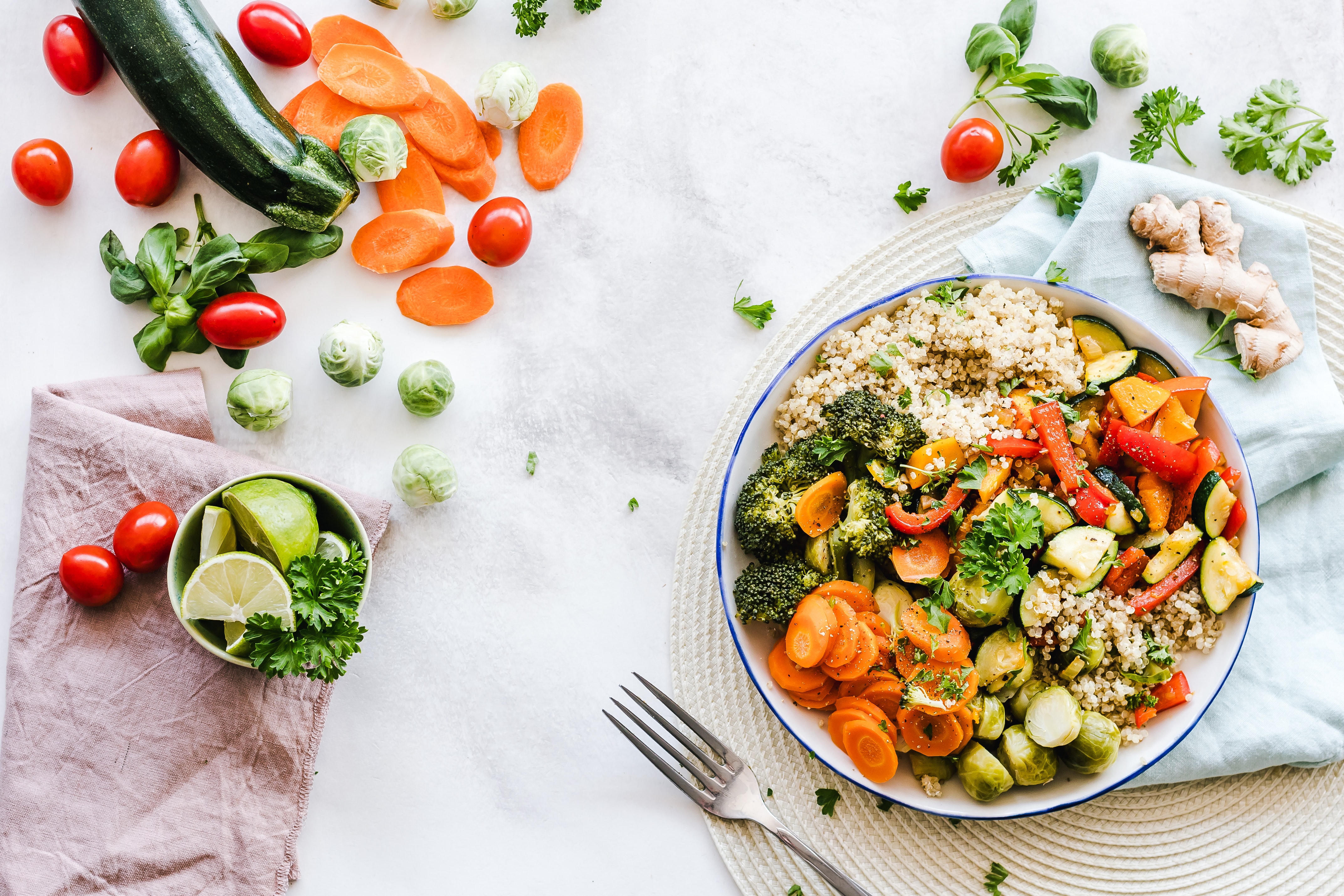According to the National Registry of Disease Office (NRDO), 1 in every 4 to 5 people in Singapore may develop cancer in their lifetime. The number of people living with cancer has only been increasing amongst Chinese, Malay and Indians in Singapore. Did you know that a third of cancers are preventable, and diet alone accounts for 30% of probable causes of cancer, second only to smoking?
Anti-cancer foods are plant foods that contain bioactive compounds also known as phytonutrients which help prevent cancer, heart disease, and diabetes at a cellular level. A phytonutrient rich balanced diet (i.e. filled with abundant fruits and vegetables) along with 30 minutes of regular moderate intensity exercise is the key to lowering your risk of cancer.
Benefits of Phytonutrients:
- Anti-allergic
- Anti-inflammatory
- Antioxidants
- Anti-carcinogenic
- Apoptosis of cancer cells
- Limit Tumour Necrosis Factor
- Stimulate DNA repair mechanisms
- Cardio protective
- Hypolipidemic (Helps reduce cholesterol)
How do I add phytonutrients every day?
Phytonutrients are the reason some of the foods today are called ‘SuperFoods’. These nutrients are present in a variety of plant foods and are often the key ingredient imparting colour to the different plant foods. Thus, like they say: ‘Eat a rainbow everyday’.
We break it down to 5 simple steps to pump up phytonutrients in your diet in 1 week.
- Take 10 seconds to count how many colours you have eaten today and make a note of it. We will look at this number again at the end of this article.
- Take a look at the foods rich in 7 different phytonutrients.
Carotene

Foods rich in Carotene
Lycopene

Foods rich in Lycopene
Resveratrol

Foods rich in Resveratrol
GLSs

Foods rich in GLS
Flavonoids

Foods rich in Flavonoids
Quercetin

Foods rich in Quercetin
Anthocyanins (Purple)

Foods rich in Anthocyanins
- Choose 1 new food from a phytonutrient to add to your diet every day.
- In the next one week, could you add more colours (phytonutrients) to your diet?
- Viola! In just 1 week, you can pump up the phytonutrient quotient in your diet and reduce your risk of heart disease, diabetes and cancer.
Other phytonutrients in our food are isoflavonoids, limonoids, polyphenols, omega 3 fatty acids, phytoestrogens, phytosterols, terpenoids and probiotics. Do comment and let us know, if you would like to know more about these phytonutrients as well.
Remember to exercise moderation when you consume any foods. Always remember, even good food in excess may be detrimental to your health.
Wishing you a Bon Appétit as you incorporate at least one anti-cancer food every day! Reach out to our team of doctors and health coaches at MyDoc to learn more about our Chronic Disease Management Programme that empowers you to reduce your risk of cancer, heart disease and diabetes.
Always here for you,
Sheetal Somaiya
Dietitian
MyDoc healthcare team
References:
- Cancer Facts You Cannot Ignore. [online]. Available from: https://www.healthhub.sg/live-healthy/1106/cancer-facts-you-cannot-ignoreThere were 34 cases of cancer diagnosed every day from 2010-2014, according to the latest report by the National Registry of Diseases Office (NRDO). See what the most common types of cancer to affect men and women are and how you can prevent them.
- Cancer Facts You Cannot Ignore, [no date]. [online]. Available from: https://www.healthhub.sg/live-healthy/1106/cancer-facts-you-cannot-ignore
There were 34 cases of cancer diagnosed every day from 2010-2014, according to the latest report by the National Registry of Diseases Office (NRDO). See what the most common types of cancer to affect men and women are and how you can prevent them. - What is cancer? | World Cancer Day. [online]. Available from: https://www.worldcancerday.org/what-cancerCancer is a disease which occurs when changes in a group of normal cells within the body lead to uncontrolled, abnormal growth forming a lump called a tumour; this is true of all cancers except leukaemia (cancer of the blood).
- What is cancer? | World Cancer Day (no date). Available at: https://www.worldcancerday.org/what-cancer (Accessed: 18 February 2020).
- Key, T. J. et al. (2004) ‘Diet, nutrition and the prevention of cancer’, Public health nutrition, 7(1A), pp. 187–200.
- GUPTA, Charu and PRAKASH, Dhan, 2014. Phytonutrients as therapeutic agents. Journal of complementary & integrative medicine. September 2014. Vol. 11, no. 3, p. 151–169.
Nutrients present in various foods plays an important role in maintaining the normal functions of the human body. The major nutrients present in foods include carbohydrates, proteins, lipids, vitamins, and minerals. Besides these, there are some bioactive food components known as “phytonutrients’ ‘ that play an important role in human health. They have tremendous impact on the health care system and may provide medical health benefits including the prevention and/or treatment of disease and various physiological disorders. Phytonutrients play a positive role by maintaining and modulating immune function to prevent specific diseases. Being natural products, they hold a great promise in clinical therapy as they possess no side effects that are usually associated with chemotherapy or radiotherapy. They are also comparatively cheap and thus significantly reduce health care cost. Phytonutrients are the plant nutrients with specific biological activities that support human health. Some of the important bioactive phytonutrients include polyphenols, terpenoids, resveratrol, flavonoids, isoflavonoids, carotenoids, limonoids, glucosinolates, phytoestrogens, phytosterols, anthocyanins, ω-3 fatty acids, and probiotics. They play specific pharmacological effects in human health such as anti-microbial, anti-oxidants, anti-inflammatory, antiallergic, anti-spasmodic, anti-cancer, anti-aging, hepatoprotective, hypolipidemic, neuroprotective, hypotensive, diabetes, osteoporosis, CNS stimulant, analgesic, protection from UVB-induced carcinogenesis, immuno-modulator, and carminative. This mini-review attempts to summarize the major important types of phytonutrients and their role in promoting human health and as therapeutic agents along with the current market trend and commercialization.

